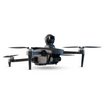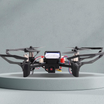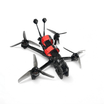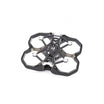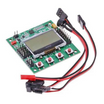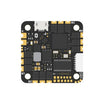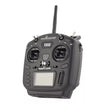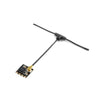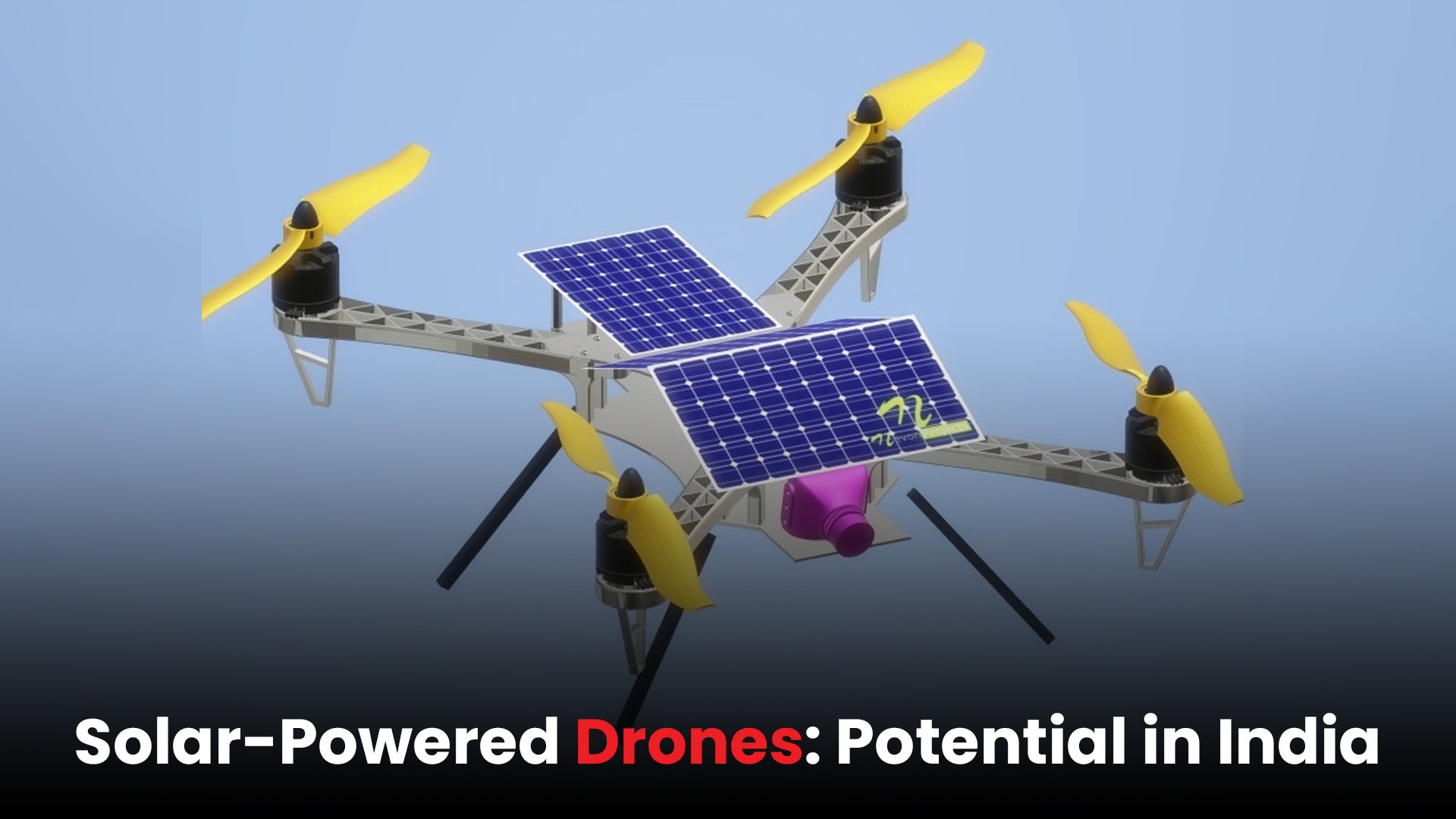The way we think about sustainable technology and aviation is being changed by solar-powered drones. These drones present a promising future in India, where there is a strong need for innovative solutions to industrial, social, and environmental problems.
This blog explores the possibilities, uses, and advantages of solar-powered drones as well as how they fit in with India's increasing focus on technical developments and renewable energy.
Introduction to Solar-Powered Drones
In contrast to traditional drones that rely on fossil fuels or limited-charge batteries, solar-powered drones offer longer flight durations and a lower environmental impact. In India, where solar energy is abundant and underutilised in many regions, solar drones can significantly contribute to energy-efficient aerial operations.
Solar-powered drones operate by using energy from the sun through solar panels installed on their wings or body. These panels convert sunlight into electricity, which powers the drone's motor and charges onboard batteries for operation during non-sunny hours.
The Need for Solar-Powered Drones in India
Geographical Benefit
India is a prime location for the adoption of solar-powered technologies since it receives plenty of sunlight throughout the year. With nearly 300 sunny days annually, the potential for solar-powered drones to operate efficiently is substantial.
Sustainability Goals
India has made significant investments to meet its goals for renewable energy. Incorporating solar-powered drones into the nation's ambitious solar energy targets aligns with its larger greener future mission.
Rising Demand for Drones
In India, drones are being used more and more in defence, agriculture, infrastructure monitoring, and disaster relief. Solar-powered drones can provide an edge by delivering longer flight durations, especially in remote areas where conventional drones face limitations.
Also read: Top 5 advanced consumer Drones in India.
Applications of Solar-Powered Drones in India
Agriculture
- Crop Monitoring: Solar drones can monitor large agricultural fields, detecting crop health issues, irrigation needs, and pest infestations.
- Precision Farming: They enable precise application of fertilizers and pesticides, optimizing resources and reducing costs for farmers.
2. Disaster Management
- Surveillance: During natural disasters like floods or earthquakes, solar-powered drones can provide real-time aerial views for effective rescue operations.
- Delivery of Essentials: These drones can deliver food, medicines, and other supplies to inaccessible areas during emergencies.
3. Infrastructure Monitoring
- Power Lines and Pipelines: Solar drones can inspect long stretches of power lines, pipelines, and other infrastructure efficiently without frequent recharging.
- Urban Development Projects: They assist in monitoring large-scale construction projects, ensuring quality and timely completion.
4. Defense and Surveillance
- Border Patrol: With extended flight times, solar-powered drones are ideal for monitoring India's vast and often challenging border regions.
- Coastal Surveillance: They can help in monitoring illegal fishing, smuggling, and other suspicious activities along India’s extensive coastline.
Also read: Successful drone missions in defence.
5. Environmental Monitoring
- Wildlife Tracking: Solar drones can monitor wildlife in remote forests and protected areas without disturbing their habitat.
- Air and Water Quality Monitoring: They can collect data on pollution levels in cities and rivers, aiding government efforts to tackle environmental issues.
Advantages of Solar-Powered Drones in India
Extended Flight Time
Unlike traditional drones, solar-powered drones can stay in the air for extended periods of time—sometimes even days—which is especially helpful for large-scale projects that need constant monitoring.
Eco-Friendly Operation
Since solar drones don't use fossil fuels, they are in compliance with India's environmental commitments under international climate agreements.
Cost Efficiency
Though the initial investment may be higher, the operational costs are significantly lower due to the absence of fuel expenses and reduced maintenance.
Adaptability in Remote Areas
Many Indian regions lack access to consistent energy supplies. Solar-powered drones can function independently, making them suitable for remote and rural areas.
Challenges in Adopting Solar-Powered Drones in India
High Initial Costs
The development and deployment of solar-powered drones require significant investment, which might be a barrier for smaller organizations or government bodies with budget constraints.
Technical Limitations
- Weather Dependence: Despite India's sunny climate, monsoons and cloudy days can hinder the performance of solar-powered drones.
- Battery Efficiency: Current battery technology may limit the amount of solar energy that can be stored for night-time operations.
Regulatory Hurdles
India’s drone regulations are still evolving. Obtaining permissions for large-scale use of solar-powered drones can be time-consuming and complex.
Skilled Workforce
Operating and maintaining solar drones require specialized skills, which are currently scarce in many parts of the country.
Government and Private Sector Initiatives
Government Support for Solar Energy
- Programs like the National Solar Mission highlight India’s commitment to leveraging solar technology. Integrating solar-powered drones into these initiatives can drive adoption.
- Incentives for renewable energy technologies could encourage private companies to invest in solar drone research and development.
Startups and Innovations
Several Indian startups are exploring solar-powered drone technology. Collaboration between the public and private sectors can accelerate progress and bring these innovations to market faster.
International Collaborations
Partnering with global companies that have expertise in solar-powered drone technology can help India overcome technical and financial barriers.
Future Outlook for Solar-Powered Drones in India
In India, solar-powered drones appear to have a bright future. With advancements in solar panel efficiency, battery storage, and lightweight materials, the performance of these drones is expected to improve significantly.
Additionally, sectors like agriculture, logistics, and urban planning are anticipated to expand their use as the cost of solar technology declines and public awareness increases.


